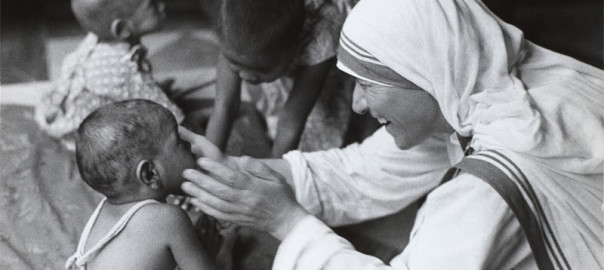After their landlord failed to pay overdue utility bills, two local families suddenly were without shelter. But Catholic Charities helped them find new homes and new hope for the future.
One family was an elderly woman in a wheelchair whose daughter was recovering from major surgery. The other family was a single mom with two teenage children who were doing well in school. It was critical that their education wasn’t interrupted.
Through the Mother Teresa Fund, Catholic Charities of Pittsburgh has helped thousands of our neighbors in need and now will be able to assist many more, thanks to donors to Our Campaign for The Church Alive! The campaign board has transferred funds that will provide an endowment of about $100,000 a year for emergency financial assistance to help pay utility bills, medications, food and similar expenses.
A story about Mother Teresa’s strong faith sparked the creation of the fund. A sister with the Missionaries of Charity told her one day that there was not enough food in the kitchen to feed those begging at the door. She was instructed to go pray, and not long afterwards they were blessed with a large donation of food.
Mother Teresa put it simply. “Only in heaven will we see how much we owe the poor for helping us to love God better because of them,” she said.
“We are called to reach out with the love of Christ,” said Susan Rauscher, executive director of Catholic Charities. “Mother Teresa gave with a smile and without expecting anything in return, seeing the face of Jesus in everyone.”
Helping people through case management is the key, according to Cathy Niebel, director of program effectiveness at Catholic Charities.
“Those in crisis need to move beyond their current situation by getting tangible assistance and tools for success,” Niebel said. “We work to spend this money most effectively, teaching people how to be self-sufficient while meeting them where they’re at.”
The changing economy has hit the working poor hard, according to Rauscher.
“We’re seeing fewer full-time jobs, so people are taking on more part-time work,” Rauscher said. “They can’t survive on that and transportation is an issue, trying to get from one job to another.
“We try to find out the ‘why’,” Rauscher added. “Why has this happened, and what can we bring to the table to help our clients move forward?”
Recipients must be profoundly poor with problems that often appear unsolvable, and no solution in sight.
“To be a servant means to think first of Christ and others, and second of ourselves,” Bishop Zubik wrote in his pastoral letter, The Church Alive! “Every single one of us is called to servant leadership.”
The Corporal Works of Mercy help us show charity toward others—to feed the hungry, give drink to the thirsty, clothe the naked, shelter the homeless, care for the sick. The campaign provides a tangible way to perform many of these good works.
“We are so grateful to all the donors,” Rauscher said. “There aren’t enough words to say thank you on behalf of those we serve.”

